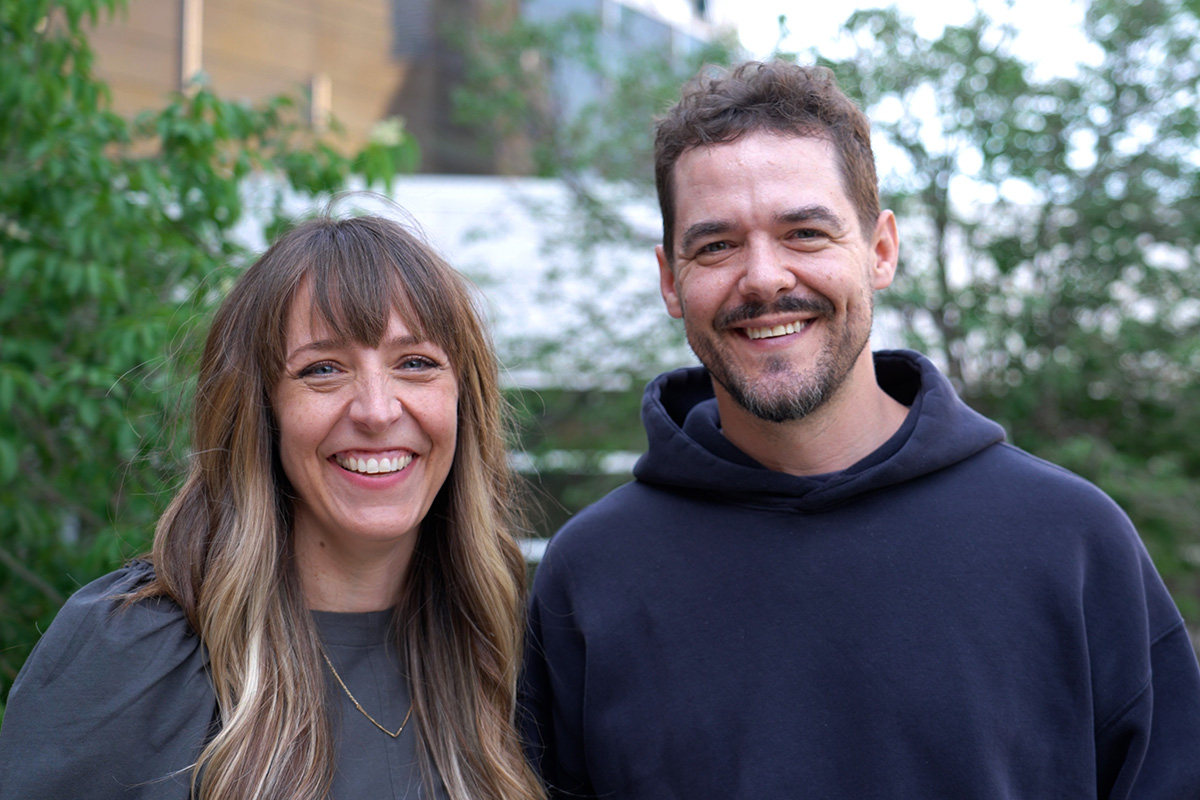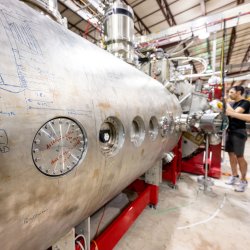A New Kidney, Medication-Free
The UW helps transplant patients return to a healthy life without antirejection drugs.

Hahn and Wiederhoeft participated in a cutting-edge clinical trial at the UW School of Medicine and Public Health. Photo courtesy of Shawn Wiederhoeft and Meagan Hahn
Madison native Shawn Wiederhoeft works as a video game developer and maintains an active lifestyle. He’s healthy today thanks in large part to a new kidney he received in 2020 from his sister, Meagan Hahn. Because he and his sister chose to participate in a cutting-edge clinical trial at the UW School of Medicine and Public Health, he’s also able to live without antirejection medications.
With no daily meds and only occasional medical checkups, Wiederhoeft says he sometimes almost forgets he’s the recipient of a kidney transplant. “I have to consciously remind myself that there’s a third kidney in here,” he says.
Wiederhoeft’s remarkable journey from serious illness to a medication-free recovery is one of a growing number of success stories reported by an international team led by UW–Madison surgery professor Dixon Kaufman, who directs the UW Health Transplant Center. The team evaluated the effectiveness and safety of a protocol that transplants certain stem cells from the kidney donor — in addition to an organ — to the transplant recipient.
These stem cells are injected into the recipient several days after transplantation and take up residence in bone marrow, where they divide and multiply into immune cells that share the genes of the donated organ. The goal is to keep the recipient’s immune system from attacking the new organ, which it would otherwise recognize as a threat.
“This procedure doesn’t replace the immune system, but it complements it with around 5 to 10 percent of the immune system being from the donor,” says Kaufman.
In doing so, the new method removes the need for costly antirejection medications that severely suppress the recipient’s immune system, carrying a host of lifelong side effects.
“Getting [the patients] back on the road to living a happy and fulfilling life is really what this is all about,” Kaufman says.
Published in the Winter 2025 issue



Comments
Scott February 5, 2026
Does this stem cell procedure have to be done during the initial transplant or can it be done a few years later?
Just asking for a friend.